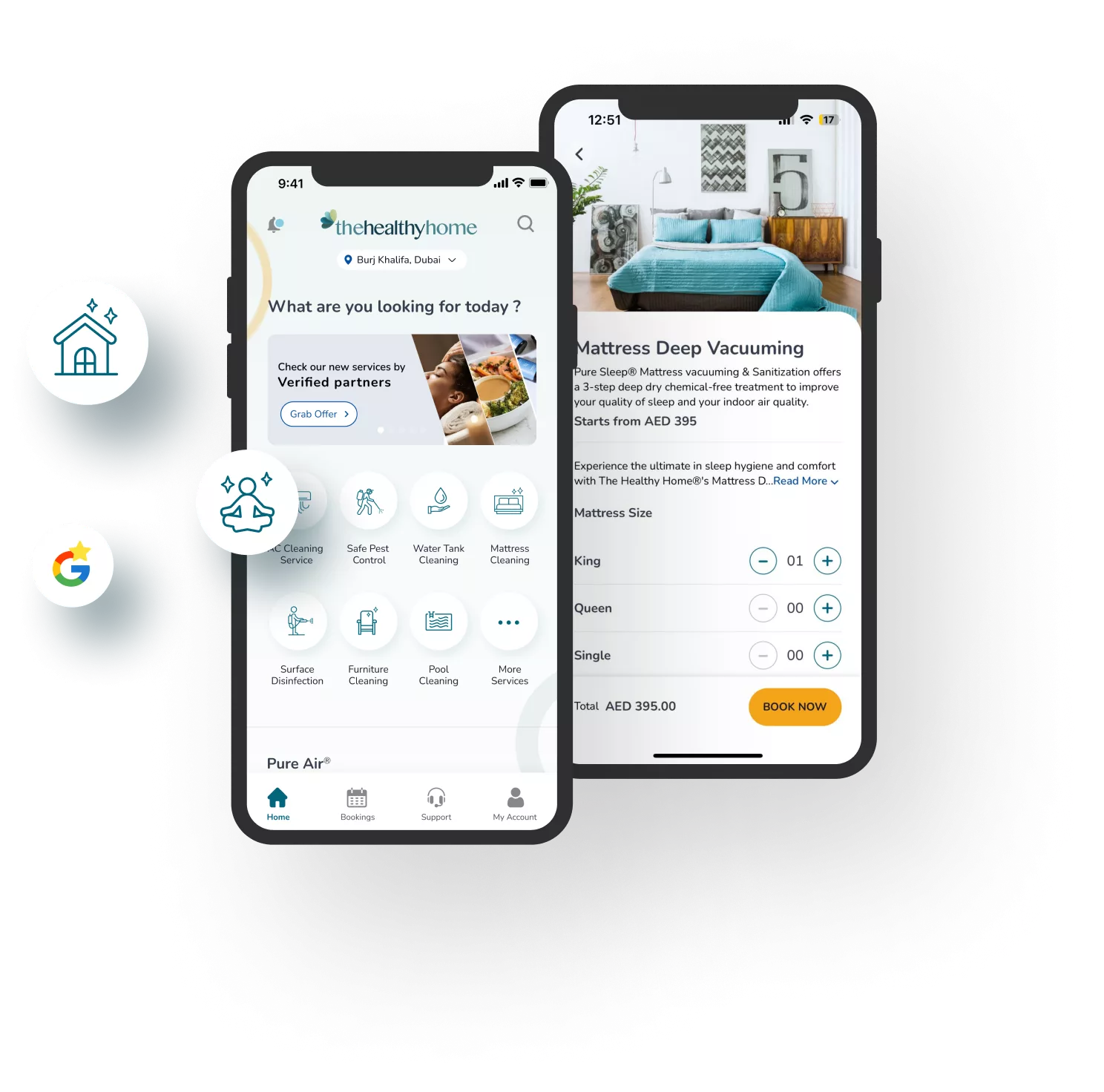Dubai, a city of soaring aspirations and gleaming towers, attracts newcomers, tourists, and residents alike. But amid the dazzle and allure, questions about tap water in Dubai often linger in the minds of those who call this desert oasis home. Is Dubai's tap water potable? Must it undergo filtration before consumption? Does it have adverse effects on hair and skin? Where does it originate? Are there any lurking health concerns? These are the queries that seek answers, and in this comprehensive exploration, we will unearth the truths about Dubai's tap water, its source, safety, and the necessity of filtration, and the importance of cleaning your water tanks to maintain clean water.
Dubai’s unique arid landscape presents a challenge, but the emirate meets this head-on with innovation and resourcefulness. To address its water needs, Dubai harnesses the power of the sea through cutting-edge desalination plants. These world-class facilities transform seawater into a valuable, usable resource, ensuring a sustainable and reliable water supply for the city.
Whether you're sipping from the tap in your Dubai apartment or indulging in your newly acquired villa's water source, it's essential to understand that the water flowing into your life is desalinated seawater. This water embarks on a journey from the Arabian Gulf, passing through the Dubai Aluminum Company Limited (DUBAL) for power generation and eventually landing at the Dubai Electric and Water Authority (DEWA) for distribution.
DEWA, the steward of Dubai's water supply, has unequivocally affirmed, "Our water quality across the generation, transmission, and distribution networks meets the highest health and safety standards set by the World Health Organization (WHO). It is the responsibility of the customer or owner and the maintenance companies to carry out regular maintenance of the internal networks and water tanks after the meter and to ensure that health and safety standards are met."
Recently, Dubai Municipality's Food Safety Department Director, Iman Al Bastaki, delineated the benchmarks for regular maintenance to guarantee the safety of tap water in your glass:
In essence, Dubai's tap water is safe to drink, provided the necessary measures are taken to mitigate potential risks associated with water stored in household tanks. Boiling is a common practice among residents to ensure that the tap water they consume is free of impurities.
While DEWA's water undergoes rigorous filtration, the safety of tap water can be compromised by poorly maintained water storage tanks. To address this concern, many residents opt for water tank cleaning services. These services ensure that tap water remains pure and uncontaminated, enhancing its quality.
Several companies in Dubai offer services to clean your water tank, with costs varying depending on the scope of the service required. Regular cleaning of your water tank is a prudent step in maintaining a clean water supply.
While DEWA's water undergoes stringent filtration, it is the water storage tanks that occasionally pose a risk to tap water. To address this, many residents opt for the additional safeguard of tap water filtration systems. These systems act as sentinels, purifying tap water from any contaminants or harmful substances that may have infiltrated during storage.
Numerous filtration services and water treatment companies offer consultations for installing such systems. The cost of fitting a water filter varies widely, ranging from under AED 100 to several thousand, depending on your requirements and preferences.
Dubai is working to create a more sustainable future, and this includes water management. The Dubai Municipality's Food Control Department announced updated recommendations to the Dubai Food Code in November 2019. These standards require Dubai's restaurants to give free tap water to clients, with restaurant owners responsible for ensuring regular quality testing of their water tanks.
This move is consistent with Dubai's objective to limit the use of single-use plastics by encouraging people to drink tap water instead of using throwaway plastic bottles. While this criterion is currently advisory in nature, it has the potential to spark major improvements in Dubai's environmental conservation efforts.
In conclusion, clean water is a precious resource, and your contribution to its protection is paramount. By actively conserving water, you not only safeguard this invaluable resource but also reduce your DEWA bills. Embrace a future where Dubai's tap water shines as a symbol of purity and environmental stewardship.
